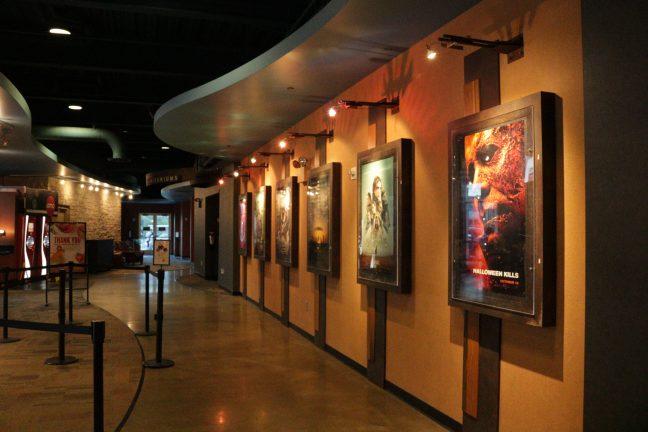From the jump, Chinese filmmaker Chloe Zhao’s “Nomadland” has proved to be a major hit, achieving the top spot at the Toronto International Film Festival, which is perhaps the most telling awards-season precursory event. The film also won a Golden Globe for Best Motion Picture in the drama category.
The TIFF winner for full-length feature has secured a Best Picture nomination eight years consecutively, two of which went on to win the award — “12 Years A Slave” and “Green Book.” Therefore, the buzz around “Nomadland” is rightfully earned, but is it good enough to bring home film’s most prestigious prize?
At its core, “Nomadland” is the textbook example of a character study. The film is set in the western frontier of the U.S. and follows a woman named Fern, played by Frances McDormand, who chooses to live a nomadic lifestyle after the 2008 recession leaves her with nothing but a van and the open road.
The audience is brought along for the ride as Fern travels from state to state taking up various jobs and meeting fellow nomads along the way. And as the movie progresses, one gets the sense that this rather unknown community of nomads are proud of their unconventional ways.
Grammys: Billie Eilish wins big on night clouded by scandal, grief
By far the best element of “Nomadland” is the cinematography. It’s a visually stunning film, and in a year where the majority of Oscar contenders are dialogue-driven, “Nomadland” is a refreshing divergence.
In a year where most of us have been restricted to home life, the mesmerizing wide shots of the American West, especially the film’s most memorable scene of Fern outlooking the Pacific, serve as a great reminder to nature’s constancies, even when human beings aren’t present to witness it. The movie’s showcasing of its natural surroundings is the best I have laid eyes on since Alejandro Iñárritu’s “The Revenant” a half decade prior.
“The Revenant,” which Iñárritu won Best Director for, had a nine-figure budget. Chloe Zhao constructed “Nomadland” with a mere $5 million. Given the film’s caliber, this is a remarkable achievement. The nascent director is at the top of her game here. Every shot in this film feels meticulously crafted, every movement choreographed to a T and each edit sequenced to perfection.
“Nomadland” is a moviemaker’s movie. Not only has Zhao’s directorial work been receiving critical acclaim at every turn, all but guaranteeing her a nod from the Academy Awards, but she also won Best Director at the Golden Globes.
While it’s well deserved, it is difficult to ignore the politics of the times. The Academy has been ridiculed in recent years for what many claim as a refusal to properly recognize the directorial work of women in Hollywood, stemming primarily from the snubbing of Greta Gerwig for her “Little Women” adaptation in 2019. Especially given the merit of her work, handing the award to Zhao seems like a perfect way to assuage the feelings of the Academy’s biggest critics.
It is hard to write a review of “Nomadland” without mentioning the work of McDormand. The camera is on her 95% of the film’s near two-hour runtime and, per usual, she doesn’t fail to amaze. This is a role that matches her reticent personality and willingness to push the limits of acting. Only two previous women have achieved three Academy Awards for acting, but McDormand will look to add her name to the shortlist this May.
Diversity, representation awarded at Oscars, defined 90th Annual Academy Awards
Where I think “Nomadland” excels compared to other contenders this year is thematically. The film is not limited to just a character study, but it is a deep dive into a life foreign to modern identity. At a few moments, Zhao interviews real-life nomads whereas most directors would’ve opted for Hollywood actors. This approach gives the film a distinctive sense of authenticity. In fact, there are a few moments where it feels like a documentary, which says a lot about the film’s ability to portray its subject matter.
As I mentioned earlier, one begins to understand that these nomads are making a deliberate choice to live the way they do, and I find something quite honorable in that choice. Albeit subtle, the nomads symbolize a salient challenge to how material-reliant society has become — best expressed by the film’s closing images.
Yet above all, Zhao’s creation raises questions regarding the true interpretation of “living.” Is it enough to be just another member of conventional society? Or are we all just going through the motions?
For me personally, “Nomadland” functions as an emotionally resonant reminder to occasionally forget about the laborious work, hardships and in particular, the technology, which consumes our everyday lives, and instead stop, look around and appreciate this great world we all share.
Check out “Nomadland” on Hulu now and stay tuned for the Academy Awards in May.

























